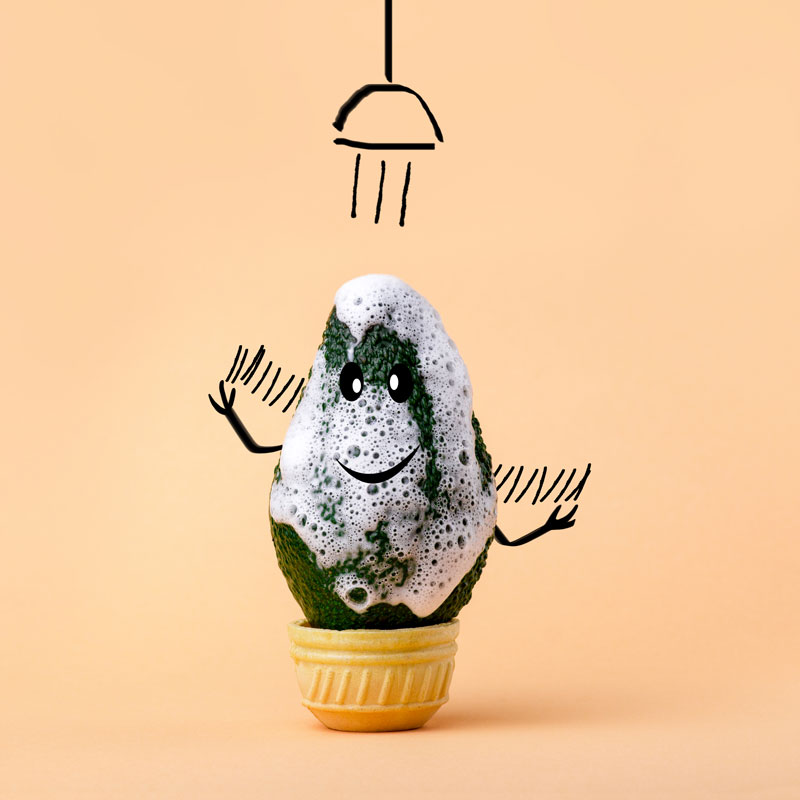Taylor A Ritz
When we get home from the supermarket and put our groceries away, the last thing we often think about is washing our produce. With all the germs around though, it’s a habit we should all get into.
Why You Should Wash Your Avocados
It may seem counterintuitive to wash fruit with inedible peels, like avocados and bananas, but germs spread easily. Think about how you pick an avocado: you pick one up and give it a gentle squeeze. Now think about how many people have walked by and touched the avocados in the store. Avocados and other fruits can quickly become covered in germs and dirt. When we cut into our fruits at home, the germs from the skins can be transferred from the peel, onto the knife, and into the interior of the produce. We then consume the contaminated fruit, introducing the germs into our bodies where they can make us sick, or worse.
In addition to bacteria, produce can be coated in pesticides introduced during the agricultural process. Removing these is equally important to our health.
How To Wash An Avocado
- Wash Your Hands. Washing the fruit does little to protect yourself from germs in your unwashed hands get them dirty all over again. Start with clean hands to ensure a successful cleansing.
- Wash Your Cutting Board. For the same reason you wash your hands, you should also wash your cutting board.
- Rinse Your Avocado. Run cool or lukewarm water over your avocado in the kitchen sink. Do not use soap. Rub the avocado gently with your hands to remove any dirt on the surface. If you have one, use a vegetable brush to scrub the peel and effectively clean the nooks and crannies on the irregular surfaces.
- Dry the Avocado. Thoroughly pat dry your avocado with a clean towel or paper towel. Moisture promotes bacterial growth, so getting them dry is important.
- Properly Store Your Avocados. Inadequate storage can also promote the spread of germs. Keep uncooked meat or fish separate from fruits and vegetables. Already-ripe avocados will keep longer when kept in the fridge.
For extra cleaning, consider using salt water or diluted vinegar for an even more thorough cleaning.











